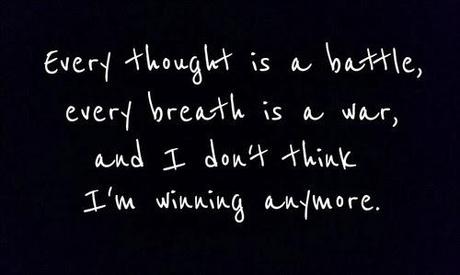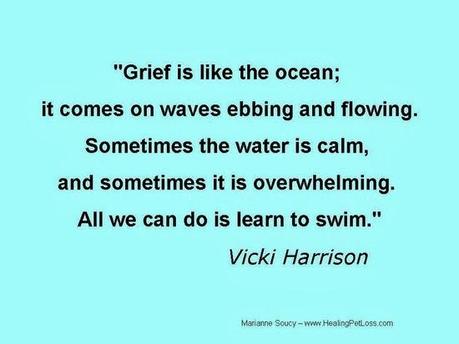Today I am going to talk about something a little different. Something that we are not told at diagnosis, something that you wont read a lot about and something that people simply don't like to talk about....chronic illness and mental health.

I am not going to talk about those moments when we all break down and cry out of fear, frustration or sadness. No I am going to talk about how it affects you mentally when you have a long term illness - whatever it is - and how they can become as controlling as the disease itself.
Depression
Now this may be a generalisation but you will get depressed - or at the least you will feel some sort of extreme sadness - not just the ordinary. Now I know you don't want to hear this, but the one point that you need to remember is that this is PERFECTLY healthy. I mean, why would you not be depressed - some form of your life has changed, you will have to change and things will become stressful. That is a lot to tae in for anyone.
Firstly you will need to recognize that you may become depressed and you need to start working to limit it by getting the support you will need. For some of us, the depression will not become an issue, but recognising the signs are a definite important part of this. Start by knowing how and who you normally are; have you started to shut yourself off emotionally? Have you simply chosen to ignore the diagnosis and hope it goes away? Trust me I think I did them all, tried to carry on, tried to be the person I was and it eventually made everything worse. So as a starting point, simply tell someone how you feel, never feel guilty, you are important.
Signs of depression include;
- Loss of appetite
- Irregular sleep pattern
- Thoughts of harming yourself
- extreme sadness
- Isolating yourself
Grief
Much like depression, when you are diagnosed with something that you will have for life, you may well find you grieve. As we all do when we lose someone we love, you will have lost something at diagnosis; yes gaining something new, but still losing something initially. Firstly....this is absolutely normal...feel it and own it. For it is your grief.

For me I grieved for the 20 something that could no longer go out, party hard etc. I lost my carefree nature, gaining pill bottles, sick notes and hospital appointments. Not exactly where I saw my life heading as a child....dreams of getting married and having babies were suddenly replaced by fear of the unknown and a loss of those dreams. As the years have gone on I have learnt to love the new me, but even now I remember those dreams and feel a twinge of sadness.
Now when I grieved it took a specific route - anger, sadness and denial - nothing else but a lot of anger. It may not be the same for you, but remember that it is perfectly acceptable to grieve during the process and you are definitely not alone.
Long term mental health
I have been lucky in that I have seemingly been through a lot in my short time on the earth, so in many ways I had the coping skills I needed. However there are so many feelings that come up through a long term illness, that NO ONE warns you about. Here are some that I feel pretty much daily;
- Guilt - sometimes it's for letting colleges down, sometimes friends, sometimes me - but I feel guilty about 80% of the time.
- Fear - As I have mentioned in previous posts, I feel fear at various points throughout the day...every twinge puts me into survival mode.
- Sadness - There are moments daily, when I catch a glimpse of myself in the mirror and don't recognize myself. It's hard to overcome.
- Regret - I don't regret a lot in life - or I try not to, but I do regret not living to my fullest when I was well enough. Life always seemed to get in the way, now though I try to do just this.
As for me I will continue with the brain fog, although disabling at times it's part of who I am.

